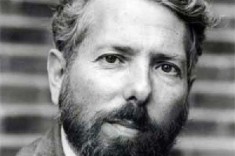| Stanley Milgram | |
|---|---|
 |
|
| Psychologist | |
| Born | Aug. 15, 1933 New York City |
| Died | Dec. 20, 1984 (at age 51) Manhattan |
| Nationality | American |
Stanley Milgram remains one of the most controversial figures in the history of psychology. Milgram was a social psychologist who invested significant amounts of time and effort into the study of how people related to obedience to authority. The notorious Milgram Experiment forever changed not only how people look at the dangers of authoritarianism, but also people’s inhumanity to each other.
Milgram’s Early Years
Stanley Milgram was born on August 15, 1933, in New York City. He grew up in very modest surroundings as his family ran a ”mom and pop” bakery in the city. Milgram was an exceptionally bright young man and he invested a great deal of time in his studies.
The work and effort he put into his studies certainly paid off. He was able to attend Queens College in New York without having to pay tuition. His degree was in Political Science and he continued on to apply for the Ph.D. program in social psychology at Harvard University. He was turned down because, surprisingly, he had never taken a single psychology course as an undergraduate. In 1954, he enrolled in Harvard’s Office of Special Students and this finally afforded him the opportunity to attend the prestigious school.
Career in Academia
After receiving his Ph.D. in Social Psychology in 1960, Milgram went on to become an assistant professor at Yale. He later became an assistant professor at Harvard in the Department of Social Relations. In 1967, he served as a full professor at the City University of New York Graduate Center.
Dark Influences
Stanley Milgram wondered how and why the Nazi Holocaust occurred and if it was possible if such events could ever happen again in the future. The notorious Adolf Eichmann, the technocrat who orchestrated the operations to carry out the Holocaust, was an individual Milgram spent a great deal of time trying to learn about. His study of Eichmann eventually led Milgram to come up with the notorious Milgram Experiment.
The Milgram Experiment
The Milgram Experiments started when Milgram was working at Yale. The focus of the experiment (or, rather, series of experiments) examined the obedience people would yield to authority figures. Specifically, the experiments examined just how far someone was willing to go to follow the orders of an authority figure.
 During June of 1961, in the shadow of the trial of Adolf Eichmann, the experiments began. At the core of the experiment was a simple question that pondered if Eichmann and his followers were merely following orders. The experiment offered a psychological study to actually answer the question.
During June of 1961, in the shadow of the trial of Adolf Eichmann, the experiments began. At the core of the experiment was a simple question that pondered if Eichmann and his followers were merely following orders. The experiment offered a psychological study to actually answer the question.
Three people were involved in the experiment: the person conducting it, a volunteer, and a person in on the experiment who was pretending to be a volunteer. The two volunteers were told to draw two pieces of paper. One was to say teacher and the other was to say learner.
The actor would always take the position of being the learner as the rigged drawing contained two pieces of paper that both said teacher. The actor was, of course, being untruthful when he/she said learner. The real volunteer was unaware of the con that occurred.
The experiment was quite strange in the sense it involved the real volunteer being responsible for administering electroshocks to the actor. The teacher would ask questions of the learner and, for each wrong answer, an electroshock was administered. The amount of the voltage would increase with each wrong answer. As part of the game, the learner was only acting being shocked. The teacher, however, assumed the shocks were real.
As the learner would suffer more and more from the shocks, the teacher would become queasy and wish to cease. However, the administrator would insist the experiment would continue. The teacher would frequently go along with the plan and continue to issue shocks to the poor learner.
They were simply responsive to what an authority figure told them. They seemed to be reassured when the authority figure noted they would not be held responsible.
The Aftermath of the Experiment
When the events of the Milgram Experiment were made public, a great deal of shock swept the nation. The academic community often felt that there was a decide lack of ethics in an experiment of this nature. Regardless, Milgram went on to become world famous and remained so until his death in 1984.